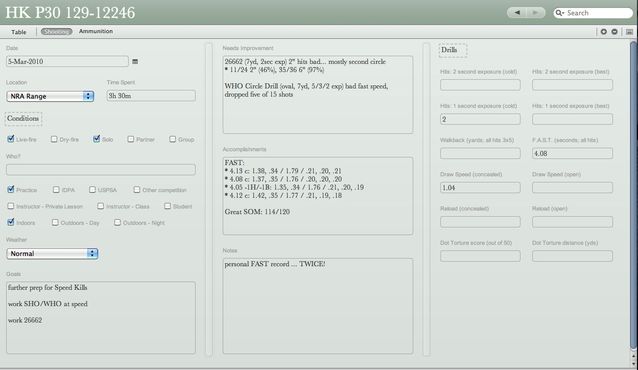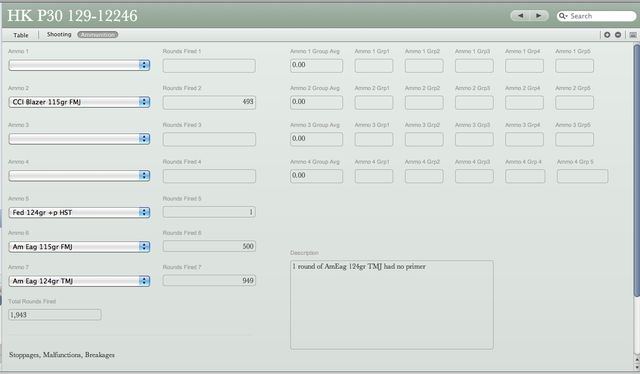

Originally Posted by
bkb0000

keep as accurate notes as possible without straining myself. you think passing guns out to friends makes it hard to keep track of round counts? start swapping upper receivers.. then start changing out barrels and bcgs and otherwise tearing down and rebuilding different weapons.. "mental running tabs" arent just unavoidable, they're necessary.
my method is to keep a range book that's got a section for each weapon i currently have. it would be easier to have a separate mini-notebook for each gun, but i'm the kind of guy that'll lose them.. easier to keep track of 1 than 10. don't get too complicated with it.. if you have a malf, scribble out a brief description and approximate round count. there's no point being incredibly technical- you don't NEED to have every last little detail, you're just trying to keep track of a given weapon's life and patterns in general.
This is what I do, using typical malfunction codes (FTF, FTE, FTEJ, DF) and when parts are swapped.
For God and the soldier we adore, In time of danger, not before! The danger passed, and all things righted, God is forgotten and the soldier slighted." - Rudyard Kipling




 Reply With Quote
Reply With Quote










Bookmarks